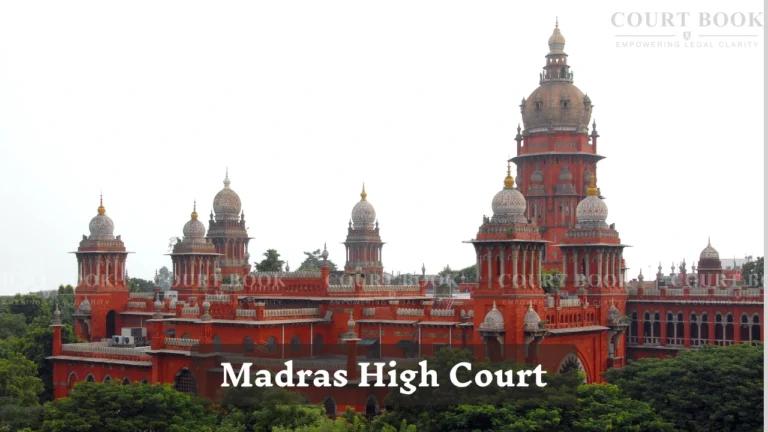The Madras High Court has emphasized the urgent need for regulatory clarity and rule amendments regarding the import of ayurvedic drugs into India. The Court ruled that the Drugs and Cosmetics Act, 1940, and the associated Rules apply not just to allopathic medicines, but also to ayurvedic and other non-allopathic drugs, particularly in matters concerning public health and safety.
The case arose when M/s. Axeon Marketing India, an authorized importer of Axe Brand Medicated Oil from Singapore, filed a set of writ petitions seeking directions for the release of its consignment held at the Chennai Customs. The company contended that while its products were classified as ayurvedic, the current import forms and licensing process under Rules 23 and 24 of the Drugs and Cosmetics Rules were incompatible with ayurvedic medicines.
Read Also:- Madras High Court Dismisses Plea Seeking UN Reforms for India’s ‘Due Place’
The company received notices from the State Licensing Authority, alleging violations under Section 33EEA of the Drugs and Cosmetics Act and Rule 154 of the Rules, related to the use of the label “Ayurvedic Proprietary Medicine.” Axeon responded by stating that none of the existing forms (Forms 8, 8A, 9, 10, 10A) were suitable for ayurvedic drug imports and hence could not apply to their consignment.
In its order, the Court, presided by Justice Senthilkumar Ramamoorthy, observed:
"As held above, the statute and rules framed thereunder apply to ayurvedic drugs. As regards import, while Rule 23 uses the expression ‘drugs’ and not drugs used in allopathy, the forms referred to therein and in Rule 24 do not apply to the import of ayurvedic or non-allopathic drugs."
Highlighting the significance of public health, the Court noted the possible presence of heavy metals in non-allopathic drugs, stressing that imports of such products must be strictly regulated:
Read Also:- Madras High Court Rejects Anticipatory Bail Plea of MLA Poovai Jaganmoorthy in Minor Abduction Case
"There is a strong public interest element, specifically public health element, in relation to the import of drugs... It is conceivable, however, that other non-allopathic medicines could have, for example, heavy metal content and, therefore, the need for regulation cannot be disregarded."
The Additional Solicitor General appearing for the Centre submitted that the existing rules cover all drugs, including ayurvedic ones, and in the absence of clear import licensing norms for ayurvedic drugs, such imports should be considered prohibited. He also contended that the Court should not prescribe new norms through judicial orders.
However, the Court held that while there is no explicit prohibition on the import of ayurvedic drugs, the lack of appropriate licensing forms should be addressed by amending the existing rules:
"It is necessary for the rule making authority to modify existing rules, prescribe standards and prepare appropriate forms in which applications may be made and import licenses granted to persons importing ayurvedic drugs."
Read Also: Madras High Court Upholds SBI's Right to Cancel Appointment Due to Adverse CIBIL Report
Pending such modifications, the Court laid down specific directions to resolve the current dispute. It ordered that the petitioner’s consignment be tested in a CDSCO-accredited laboratory. The testing, to be overseen by the State Licensing Authority, must confirm compliance with Indian manufacturing norms for ayurvedic drugs. If found satisfactory, the customs authorities must release the goods:
"If a satisfactory report is received... the 5th respondent shall certify that the manufacturing process is in conformity with the process prescribed... and the goods should be released."
The entire process was directed to be completed within a maximum of eight weeks, preferably six, with all expenses borne by the importer.
Case Title: M/s. Axeon Marketing India vs. Assistant Commissioner of Customs & Others
(W.P. Nos. 8920, 8924 & 8928 of 2025, Madras High Court)














